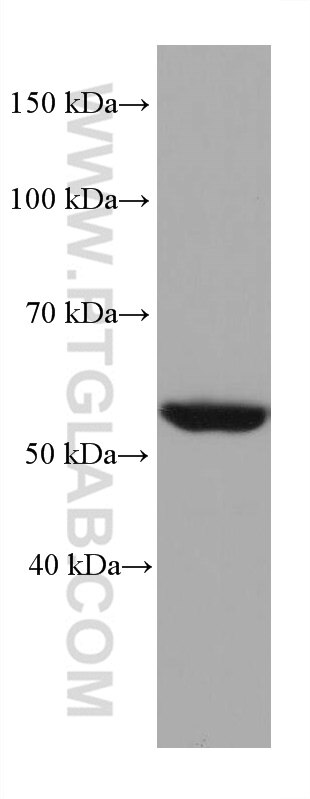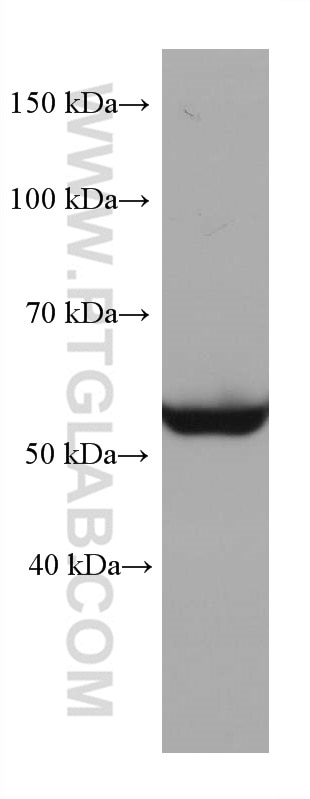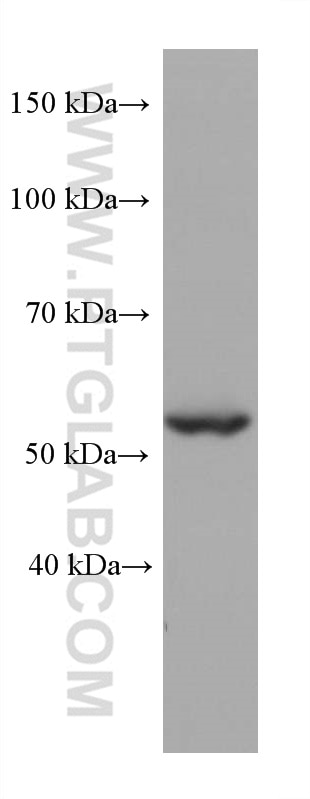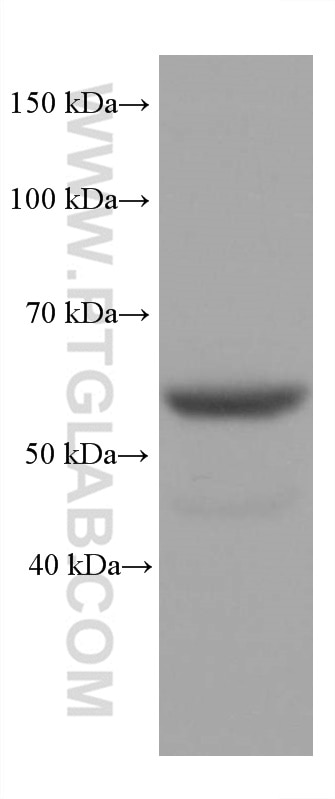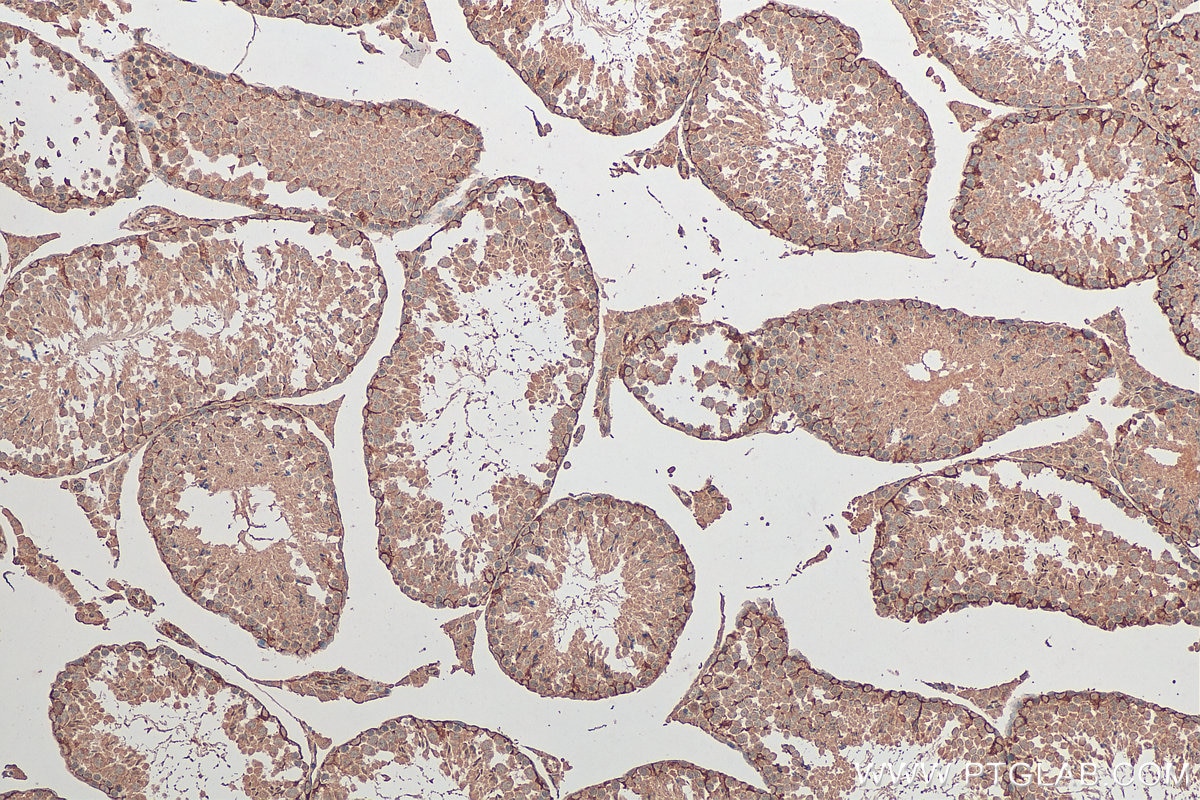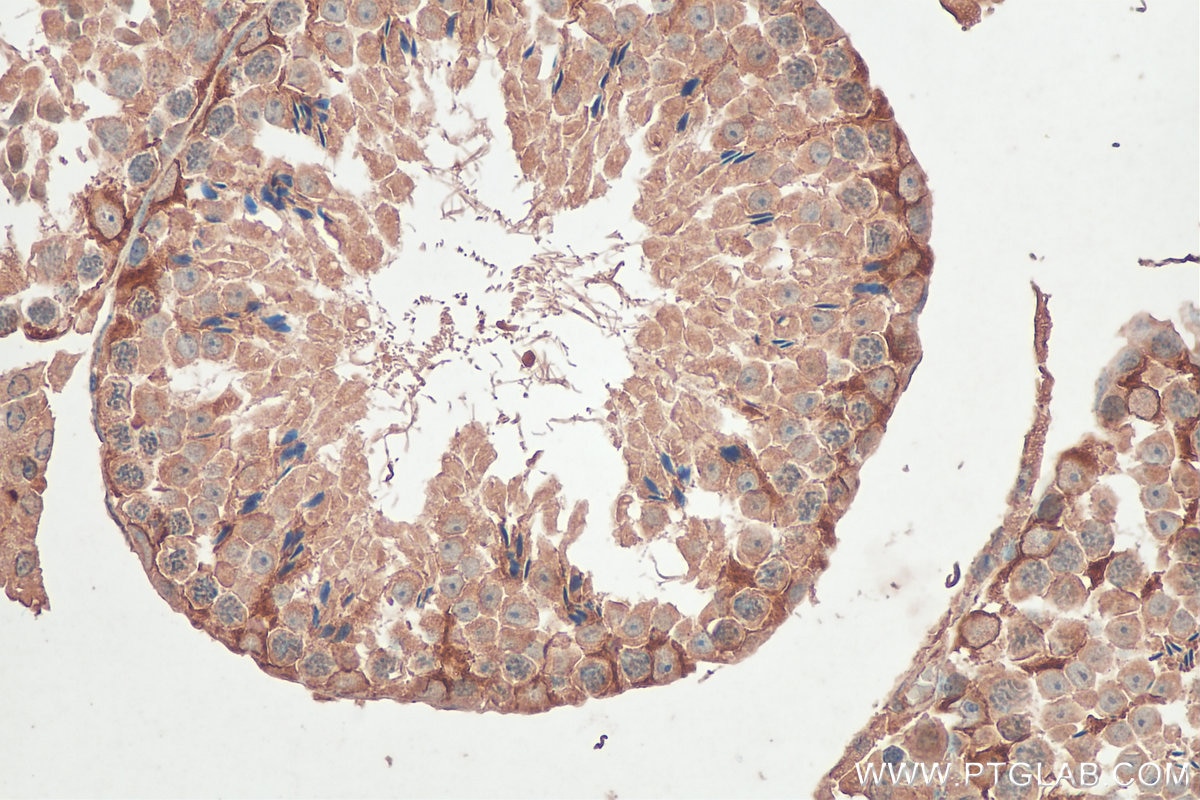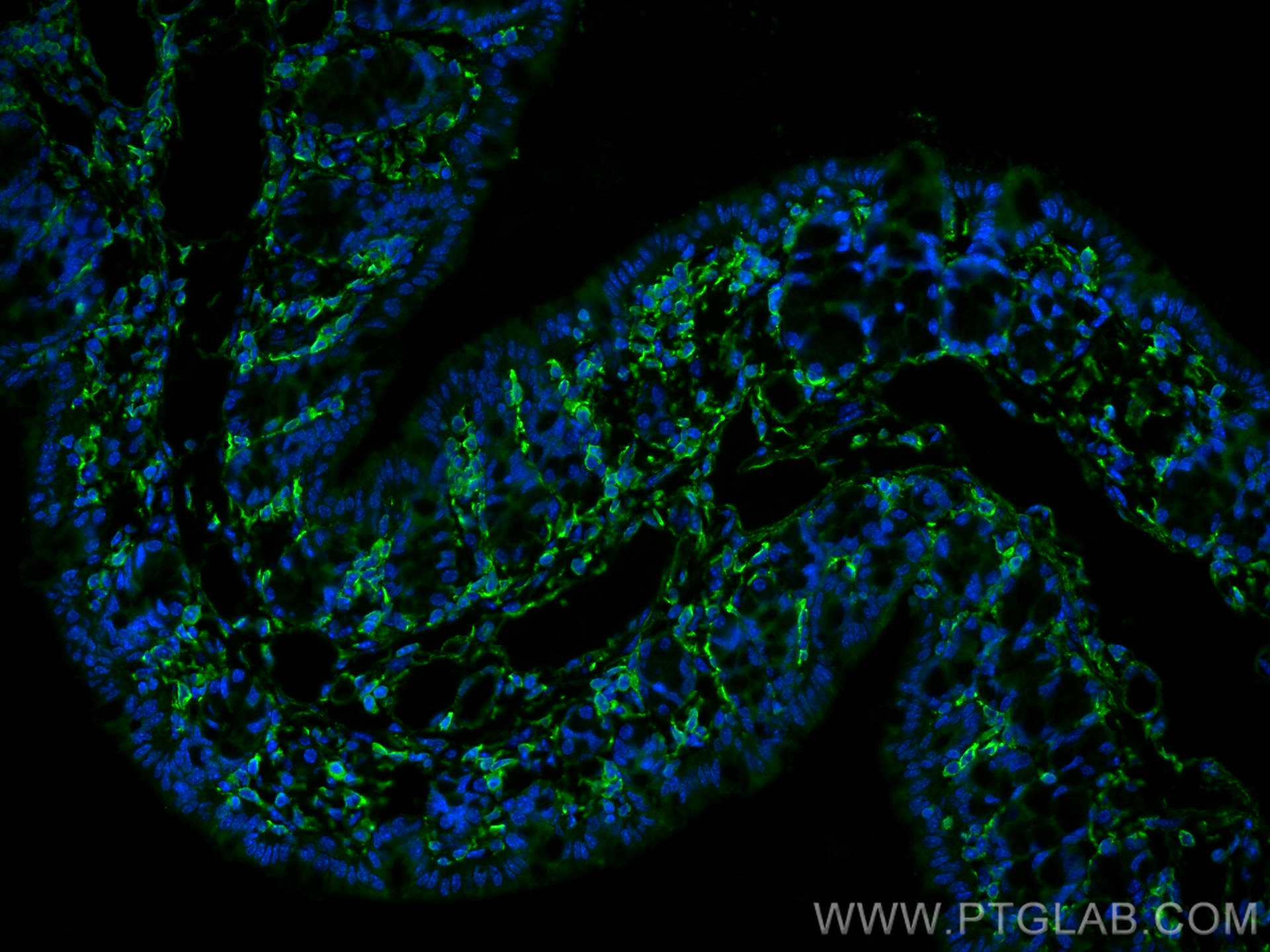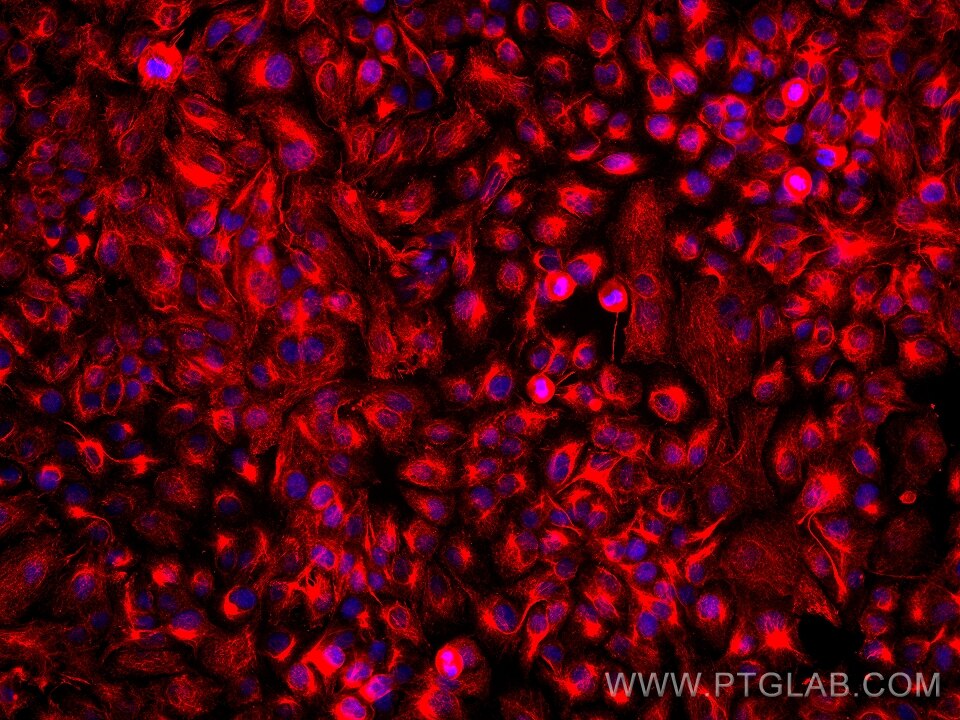Anticorps Monoclonal anti-STK11/LKB1
STK11/LKB1 Monoclonal Antibody for WB, IHC, IF/ICC, IF-P, Indirect ELISA
Hôte / Isotype
Mouse / IgG1
Réactivité testée
Humain, rat, souris
Applications
WB, IHC, IF/ICC, IF-P, Indirect ELISA
Conjugaison
Non conjugué
CloneNo.
2D11E5
N° de cat : 68016-1-PBS
Synonymes
Galerie de données de validation
Informations sur le produit
68016-1-PBS cible STK11/LKB1 dans les applications de WB, IHC, IF/ICC, IF-P, Indirect ELISA et montre une réactivité avec des échantillons Humain, rat, souris
| Réactivité | Humain, rat, souris |
| Hôte / Isotype | Mouse / IgG1 |
| Clonalité | Monoclonal |
| Type | Anticorps |
| Immunogène | Peptide |
| Nom complet | serine/threonine kinase 11 |
| Masse moléculaire calculée | 49 kDa |
| Poids moléculaire observé | 50-55 kDa |
| Numéro d’acquisition GenBank | BC007981 |
| Symbole du gène | LKB1 |
| Identification du gène (NCBI) | 6794 |
| Conjugaison | Non conjugué |
| Forme | Liquide |
| Méthode de purification | Purification par protéine G |
| Tampon de stockage | PBS only |
| Conditions de stockage | Store at -80°C. 20ul contiennent 0,1% de BSA. |
Informations générales
STK11(serine/threonine-protein kinase 11) is also named as LKB1, PJS, and belongs to the protein kinase superfamily. It controls the activity of AMP-activated protein kinase (AMPK) family members, thereby playing a role in various processes such as cell metabolism, cell polarity, apoptosis and DNA damage response. The tumour suppressor protein LKB1 is a serine/threonine kinase that has been causally linked to Peutz-Jeghers syndrome (PJS). Defects in STK11 are a cause of Peutz-Jeghers syndrome (PJS) and defects in STK11 have been associated with testicular germ cell tumor (TGCT) and some sporadic cancers, especially lung cancers. STK11 has 2 isoforms with MW of 49 kDa and 45 kDa, and can be detected as 50-54 kDa after posttranslational modification.
